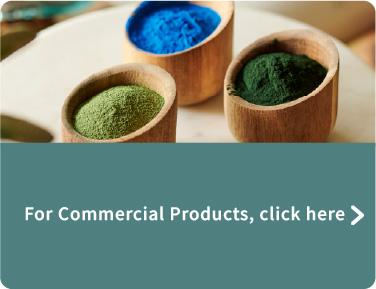What is Phycocyanin?
Phycocyanin is a water-soluble blue pigment found in the edible cyanobacterium spirulina. It is a type of pigment protein. For many years, it has been used as a natural blue colorant in food coloring.Phycocyanin is known to have anti-inflammatory and antioxidant properties, and research on its health benefits is gaining attention.
A Valuable Natural Blue colorant Derived from Spirulina
Similar to chlorophyll and carotenoids, phycocyanin is involved in photosynthesis and is known for its antioxidant properties.It is extracted using water, not organic solvents, which is one reason it is considered highly safe. In nature, materials containing blue pigments are rare, and phycocyanin, a unique component of Spirulina that exhibits a vivid blue color, is widely utilized as a valuable natural blue pigment.
Phytochemicals Gaining Attention in Recent Years
Phycocyanin is a type of phytochemical, a component currently attracting attention.Phytochemicals are substances that plants, such as vegetables, possess to protect themselves from ultraviolet rays and other threats. They are believed to have similar effects in our bodies.
“In addition to the five essential nutrients for humans—carbohydrates, proteins, fats, vitamins, and minerals—dietary fiber is known as the sixth nutrient. Recently, phytochemicals have been gaining attention as the “”seventh nutrient.”” “
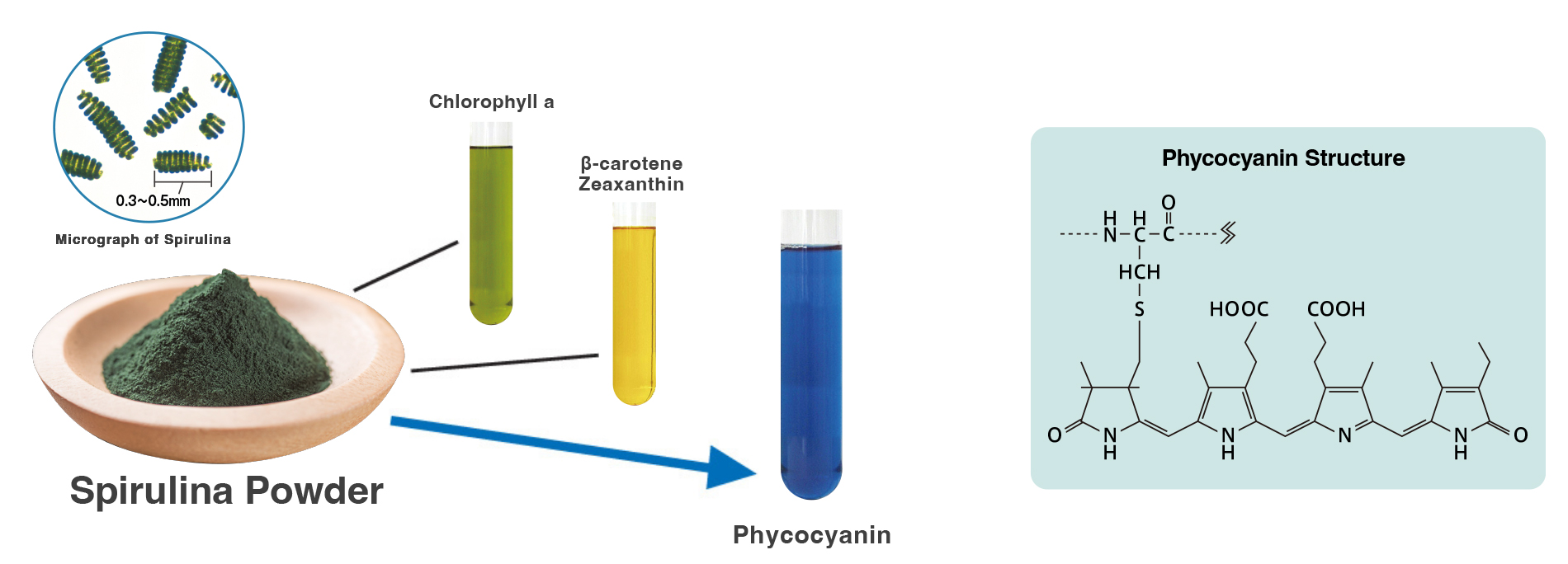
Over 50 Years of DIC’s Spirulina and Phycocyanin Research
DIC began researching Spirulina in 1970 and, in 1977, became the first in the world to successfully mass-produce Spirulina under controlled cultivation. As a pioneer in the Spirulina industry, DIC has been conducting research for over 50 years.Research Report on Phycocyanin Confirmed by Human Clinical Trials
In this study, 93 women aged 20 to 60 who identified as having dry skin were divided into two groups and tested over an eight-week period. One group took tablets containing 410 mg of phycocyanin daily, while the other group took placebo tablets that looked identical but did not contain phycocyanin.In this study, 93 women aged 20 to 60 who identified as having dry skin were divided into two groups and tested over an eight-week period. One group took tablets containing 410 mg of phycocyanin daily, while the other group took placebo tablets that looked identical but did not contain phycocyanin.
※TEWL is an indicator of the skin’s barrier function. Lower values indicate that the skin is less prone to losing moisture.
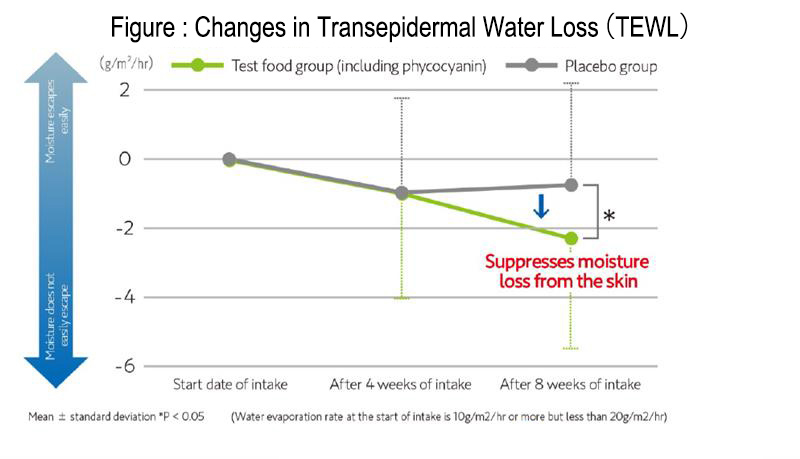
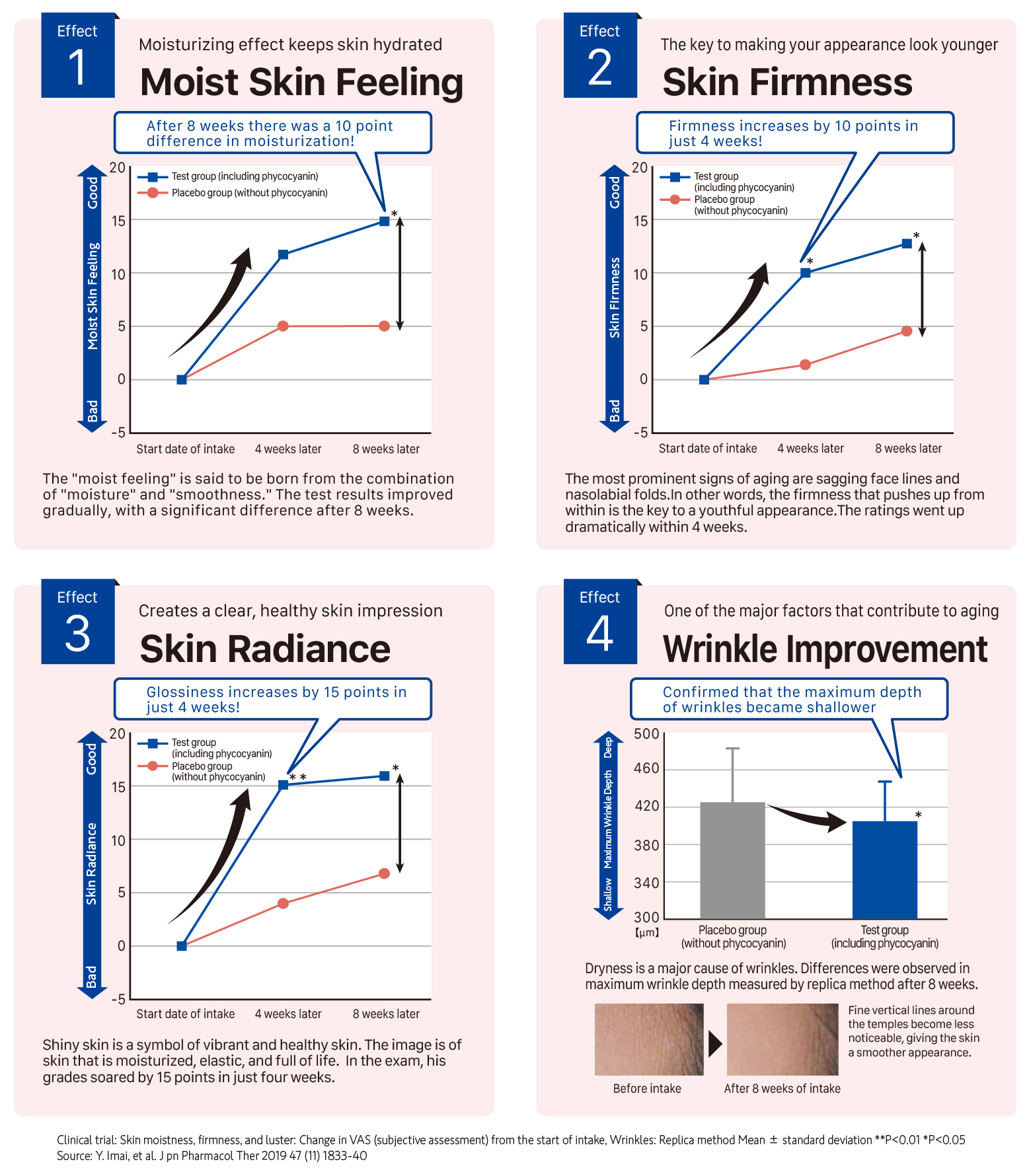
Examples of Phycocyanin Utilization as a Natural Colorant
Characteristics of Phycocyanin
- The color is a vivid blue with a slight blue fluorescence.
- Compared to gardenia blue, it is much more vibrant and bright.
- Products are available in both powder and liquid forms.
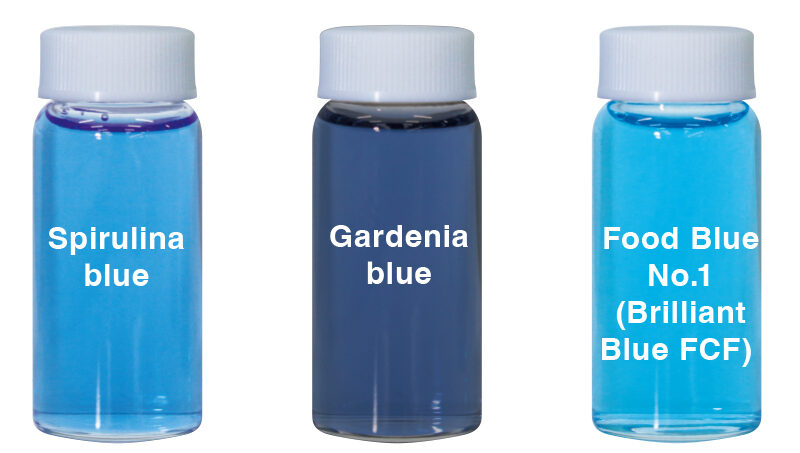
How to Use Phycocyanin
- Add phycocyanin to food at a ratio of approximately 0.01% to 0.1%.
- The optimal time to add it is after the heating process, at temperatures below 60°C.
- By appropriately mixing it with other colorants such as red or yellow, you can create intermediate colors like purple or yellow-green.
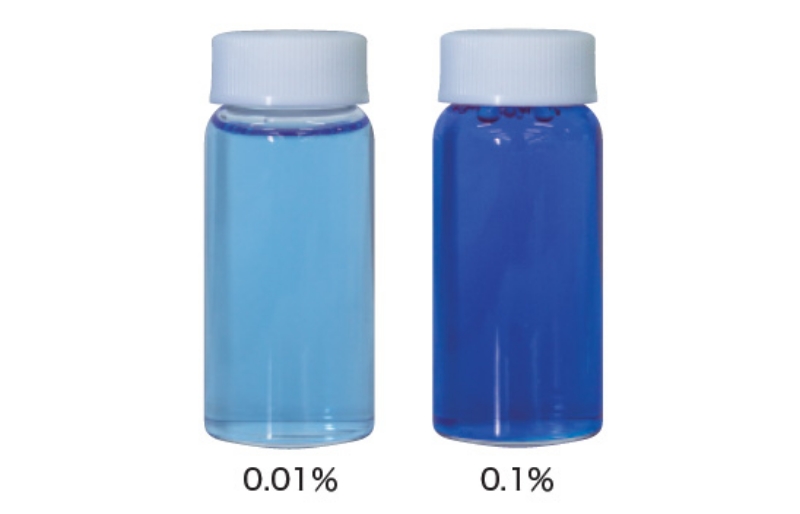
Examples of Utilization as a Natural Colorant
Phycocyanin is used as a blue natural colorant in a wide range of food products:- Frozen Desserts: Ice cream, ice pops, gelato, etc.
- Confectionery: Jelly, cakes, gum, gummies, candy, chocolate, etc.
- Drinks: Soft drinks, smoothies, alcoholic beverages, cocktails, etc.
- Japanese Sweets: Nerikiri, dango, anko, kanten, etc.
- Baked Goods: Cookies, muffins, donuts, etc.
- Others: Icing, bread, sushi rolls, noodles, wasabi, etc.

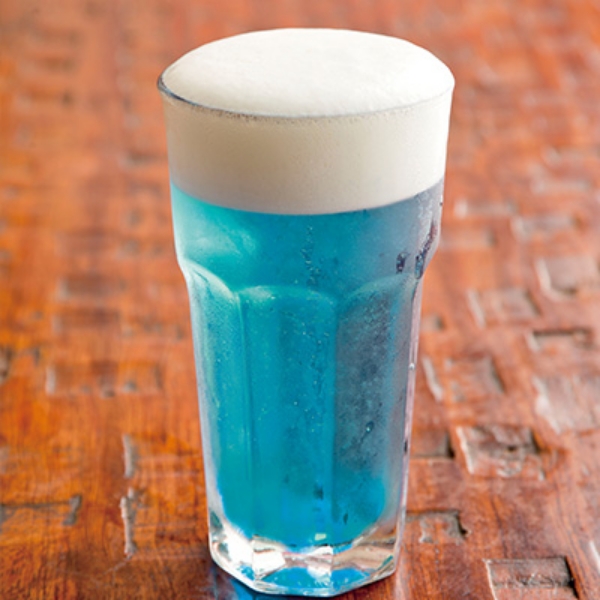
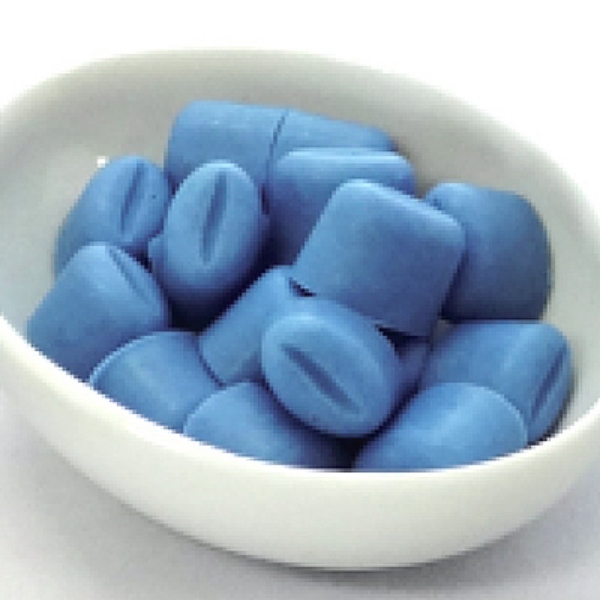

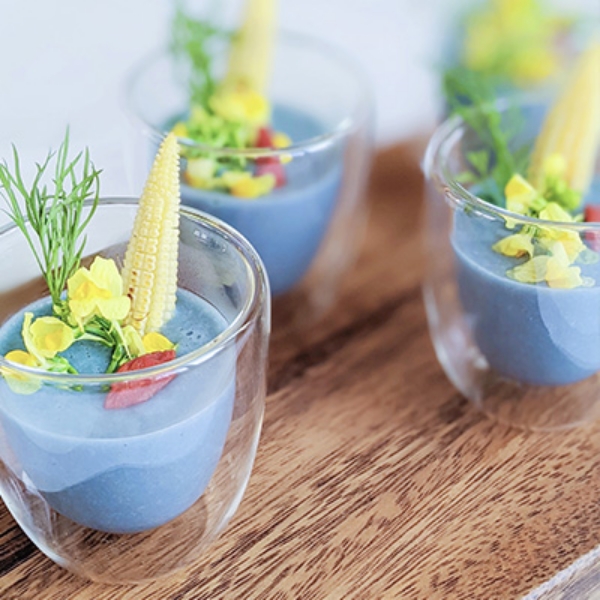
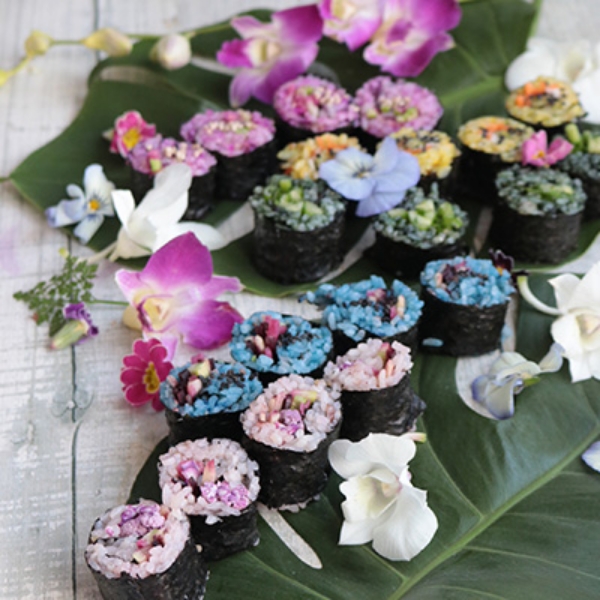
Trust and Assurance with DIC Spirulina and Phycocyanin
The DIC Group owns Spirulina cultivation plants in the United States and Hainan Island, China, and is responsible for the entire production process from cultivation to final product.We conduct rigorous checks at every stage to ensure we deliver products of the highest quality.



 Product Search
Product Search Request Documents
Request Documents
 Online store
Online store
